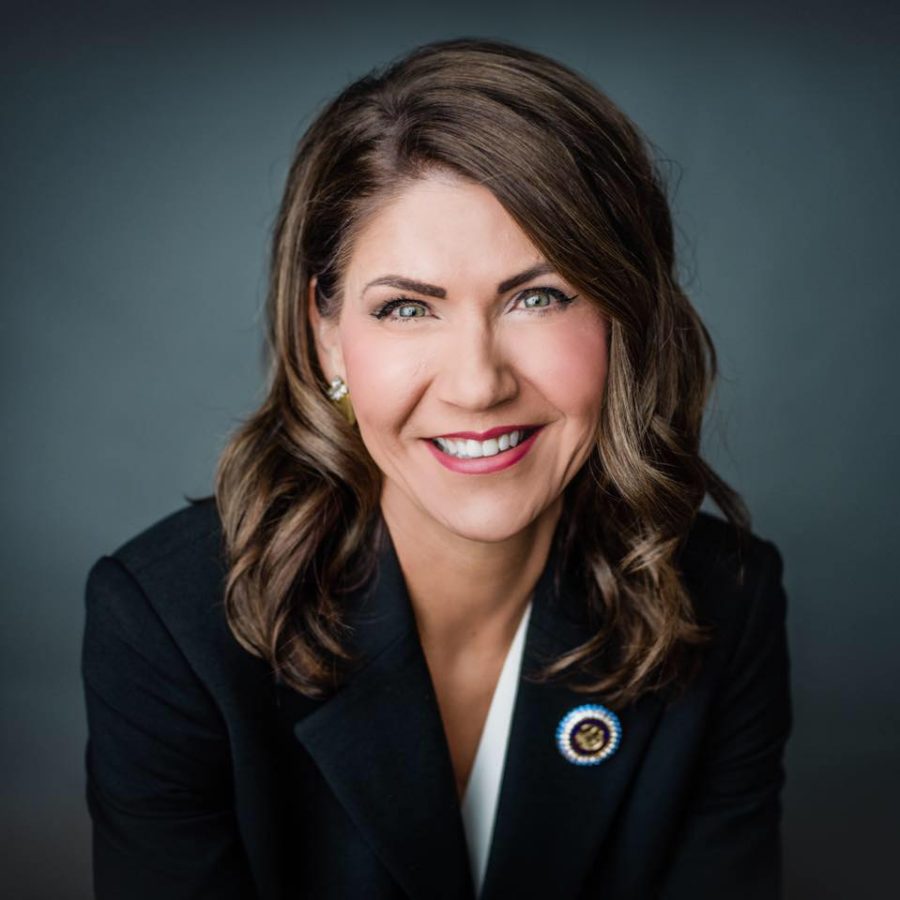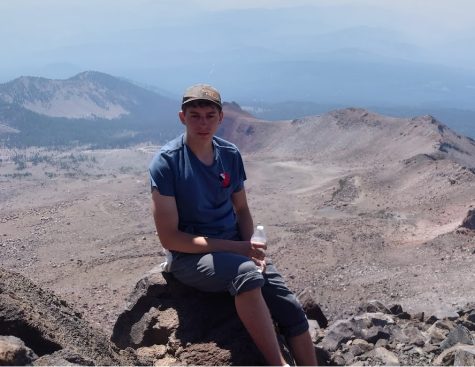A chat with Kristi Noem: governor talks out-of-state campaigning, tax cuts
November 4, 2022
South Dakota voters will go to the polls Nov. 8 to elect the next governor of South Dakota. The race between Republican Gov. Kristi Noem and Democrat Jamie Smith remains competitive, according to polling. The Collegian sat down with Governor Kristi Noem at the 2nd Street Diner in Madison, SD to discuss her stance on tax cuts, teacher pay, tribal relations, abortion rights and out-of-state campaigning.
The Collegian: Through your term as governor, you’ve taken a more moderate stance on tax cuts than some of your colleagues in the legislature. What is your plan to ease the burden many lower-income families are facing?
Kristi Noem: Well, I would disagree with that. In fact, when I was in the legislature, I was the one who brought forward property tax reform that lowered taxes for farmers and ranchers so that they could stay on their land and not be taxed off. I’ve repealed several taxes since I’ve been governor and we are going to, this year, repeal the sales tax on groceries which helps every single family in South Dakota. That is going to be the largest tax cut in South Dakota history. We’ve grown our economy so much that we can do this. And the nice thing about this is that it’s going to help folks that get up every day and go to work. But mainly lower income the most because more of their budget goes toward groceries and gas. And so it’s something 37 states already do, and it’s something that I’m looking forward to getting done as soon as we go into session.
TC: Initially, you were against this bill, correct?
KN: I wasn’t. Not at all. In fact, last year, I spent several days with my team working on the revenue projections and if we could do it and what it looked like for our state budget. It didn’t pass the Senate, so it never got to my desk to where we could sign it into law. But no, I supported it last year. We’d like to see it get finished and across the finish line this year.
TC: Teacher pay has dropped again to 50th in the country according to several studies. How will you address teacher pay and improve retention in South Dakota’s public schools?
KN: Yeah, you know, it is an issue we’ve got. We did, last year, the largest increase to education that’s ever been done in the state of South Dakota through the student aid formula. The districts have more money. I don’t get to determine what a teacher is paid; the local school boards do, so we’re looking at all aspects of what we can do to help our teachers. The grocery repeal of the sales tax would be helpful, increasing their wages. We’ve had wages go up 21% in the last two years on average here in the state, and we’re making sure that we’re continuing to look at teacher salaries also, cost of living here, and then making sure that their benefits are stable too. Teachers have a retirement system here in South Dakota that the state impacts dramatically so making sure that’s strong and that it’s the best in the nation is important.
TC: What is your plan to improve tribal relations?
KN: I work with tribes every single day. I’ve gotten law enforcement agreements with different tribes on events that they have or in their communities. Highway patrols go in and partner with tribal police. We have counseling contracts with several tribes where we do addiction and mental health counseling for them and the state has paid for them. We have relationships with tourism. This last year I put in my budget millions to help promote our Native American agriculture industries, but also tourism that we’ll be using to help drive more economic development there. So I think a lot of times people don’t know how much we’re working with our tribes. They hear about disagreement and a paper in the news and don’t realize that that might be a small portion of folks that are talking about one issue when we’re working on all different kinds of conversations, especially with our kids. Down at Pine Ridge, we did a public school that does technical training, welding and skills and that’s the first in South Dakota to have that. It’s really been a remarkable project for us to do together as well.
TC: What is your plan for abortion in the state?
KN: Well, I don’t have a plan. You know, we had a decision earlier this year that returned the authority back to the state level. I think the legislature will have a debate on what they want the state law to look like. The law that we have today was passed in 2005, long before I was ever governor. So when that decision came down, it reverted back to the 2005 law. And I know that the legislature is talking about bringing some bills to make it reflect the people of South Dakota.
TC: Some voters are split on your out-of-state campaigning. How do you make the case to South Dakotans that it’s in their interest?
KN: Well, when I ran for governor, I talked about the fact that we needed to grow our state, that we needed to recruit people here. Our economy was going down. People were leaving. For a lot of our college students, the only way they could get a career or job they wanted was to leave and find it somewhere else, and I wanted them to be able to stay here and get those opportunities. We have been recruiting and telling South Dakota’s story. I never go out of state without talking about our state and why people should come here and invest here and move their businesses here. And also it’s important that we know that our way of life here in South Dakota is respected and what we do here. We want our economy to grow. We’ve done exactly that; we’ve grown at 10 times the national average. If you look at every community, we still need people to fill jobs. We still need people to come here and be a part of our communities, keep our schools open and create those new businesses that all of our students from our universities want to fill. My job is to be an ambassador, the marketer of the state of South Dakota. I know people have different opinions, but what we’ve done telling our stories has worked.
See story on Noem’s opposition, Democrat Jamie Smith, here:























